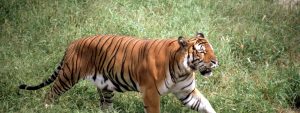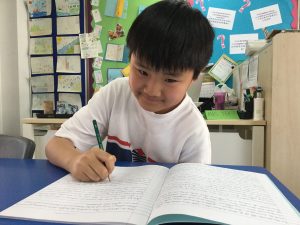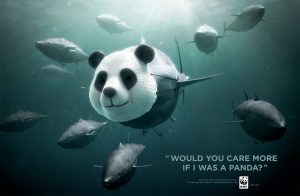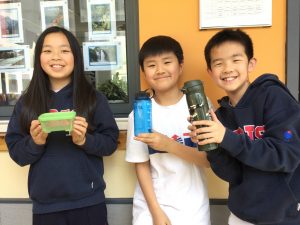Written by Year 5 & Year 6 Students and edited by Solay Lor (Year 5 Teacher)
All of our Primary Students have been preparing for Environment Week. While in the first semester, the focus was more on the conservation of natural habitats, the second semester highlights endangered animals.
Two of our Year 5 students share their personal research: Julia Shih (Y5C) writes about her astonishment regarding the population’s unawareness of the decrease of tuna fish, while Eddie Tang (Y5C) shares about the endangered South China Tiger species
By Julia Shih (Year 5C Student)
All over the world, different kinds of animals are losing their populations to humans. At YCIS, we are learning how to become better friends to the environment. Recently, I did some research about endangered animals for school, but there was one species that really stuck out to me: The Bluefin Tuna.
This is an endangered species that not many people have heard about. Why? Nobody is really trying to promote this animal, which is probably because it does not appeal to them. Most people in this world have heard of pandas, a cute and cuddly creature. People feel dedicated to saving them. But when it comes to tuna, no one even cares anymore.
The demand for eating tuna is getting higher, meaning their population is getting lower. When there is no tuna left, will people miss these fish on their dinner plates? It is time to save the tuna: fish that have been treated unfairly, but may not have to end that way.
By Eddie Tang (Year 5C student) 
The South China Tiger is known to be extinct in the wild, and now only exist in zoos. They have been hunted for their bones, which are used as Chinese medicine. In addition, the tiger skin is sold to fashion stores and made into clothing.
I believe in saving endangered animals because they are all needed to keep the food chain balanced. If people continue to carelessly kill or poach animals, then the food chain all goes wrong. For example, in the UK, many rabbits died from disease and that caused the foxes to begin starving. As the fox population went down, there was a rise in mouse breeding which caused an imbalance of food.
 I’m proud to be a part of the activities during YCIS Environment Week because we can learn about ways to help save the world.
I’m proud to be a part of the activities during YCIS Environment Week because we can learn about ways to help save the world.
 By Joshua Xie, 6A
By Joshua Xie, 6A
Can Children Make a Difference to the Environment? – Yes, I think that children can make a huge difference to the environment. Although there are many, many reasons, I will only state the three reasons that are the biggest to me.
- I think I’ll start small, although this is anything but small. The production of meat places a heavy burden on the environment. For example, many of the crops and vegetables we grow are just to feed the animals we eat. It requires tremendous amounts of water and crops to produce meat. In addition, we continue to cut down trees for farm and grazing land. As the world’s population grows more and more rapidly, the demand for meat grows as well. As I will mention later, there are over 2.2 billion children in the world and that number is growing by the second. If all of those children ate a little less meat, the difference would be humongous. Together, children are stronger than the strongest human, wiser than the wisest human, and because of that, capable of making a big difference. Which leads nicely to my next point.
- Felix Finkbeiner. Katherine Liu. Qi Er Qiu. What do they all have in common? They made huge differences and they were children when they did. Mr Finkbeiner was only nine years old when he hatched the plan to plant a million trees in Germany. As of today, his company, Plant for the Planet, has planted over 3 billion trees! Katherine Liu is an artist. A talented one, too. She paints and draws as a way to change the world. She once submitted a drawing of exotic animals to a competition in order to highlight conservation issues. She came in 2nd! Qi Er Qiu. Although her name is a bit awkward, what she did was amazing. When she found out that every year disposable chopsticks make up a huge portion of waste in Asia, she started her own reusable chopstick company.
- Last but not least, I’d like to talk about the amount of children in the world. This is an overwhelming amount of people and if they all altered their habits a little bit, it would make a huge difference to the world. For example, if all children ate 1 gram less of meat everyday to start with, that would be 2,200 tons of meat saved, which means a lot of resources, water and land saved. There are other habits we can improve: turning off the lights, convincing our parents to reduce the amount of plastic we buy, and taking showers instead of baths.
There are many more reasons why children can make a difference to the environment and ways they can do so. Imagine we all worked together and changed the world for the better?
We remind you that Environment Week is happening the whole week from April 17th to Friday 21st. For more information regarding the program, check the ECE&Primary News Blog.


